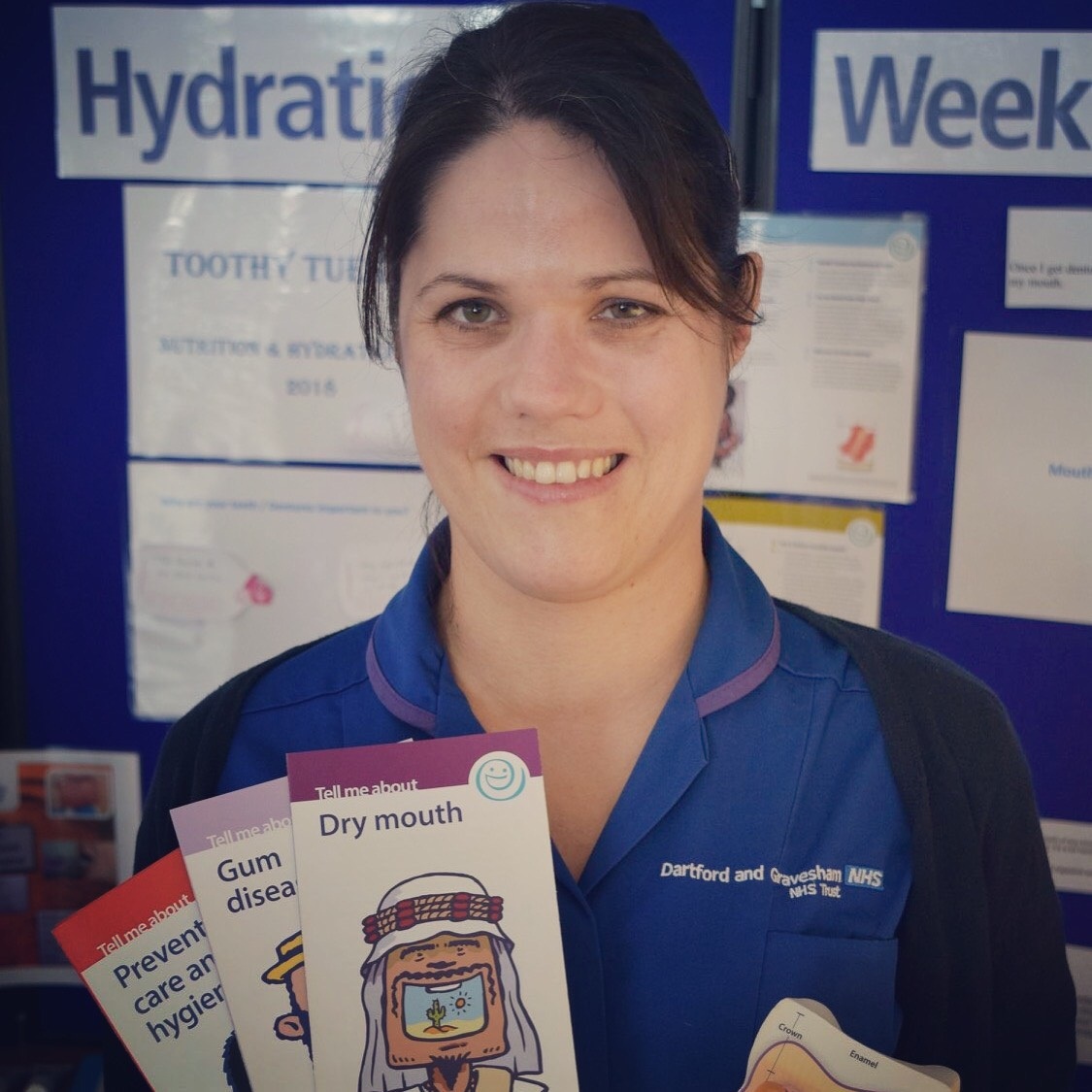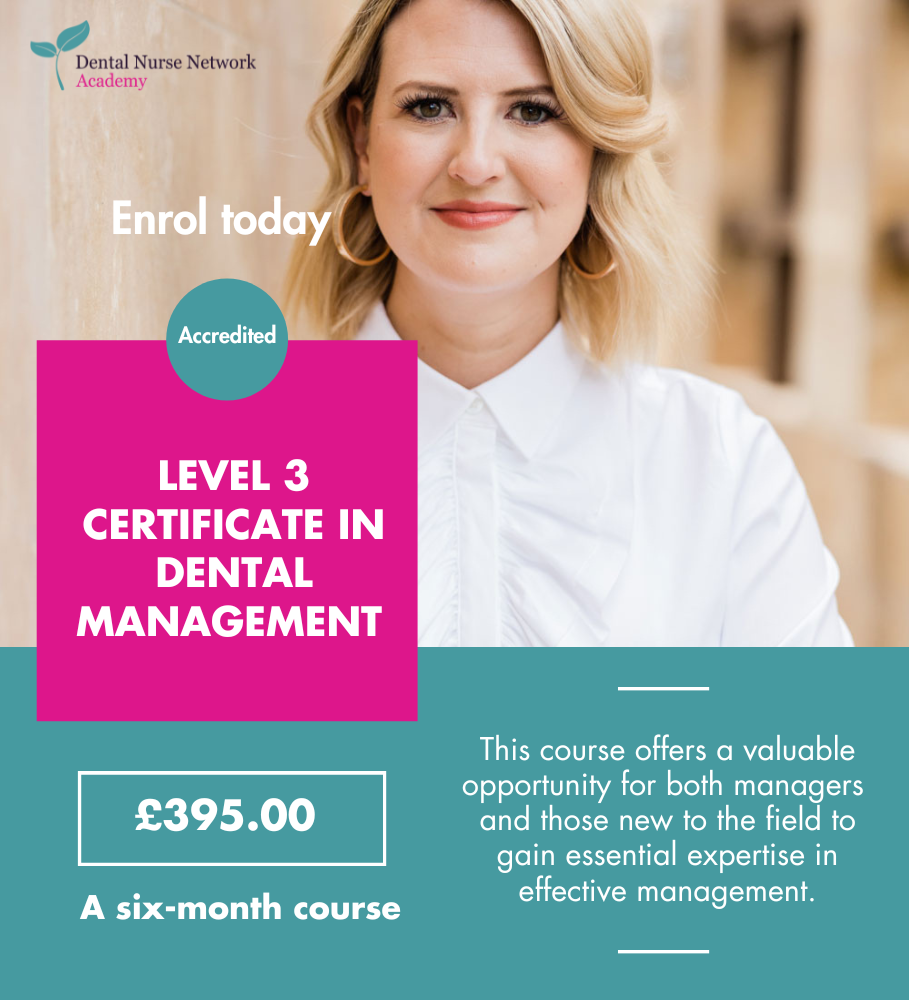 Although we are in very uncertain times, at DNN we feel it is even more important than ever to remember why we are in the dental care profession. For this month's Inspiration Q&A, we have interviewed Sarah, our new Oral Health Educator Assessor.
Although we are in very uncertain times, at DNN we feel it is even more important than ever to remember why we are in the dental care profession. For this month's Inspiration Q&A, we have interviewed Sarah, our new Oral Health Educator Assessor.
When did you start working as a dental nurse?
I started working as a dental nurse in 2005 in general practice.
Why did you start working as a dental nurse? Was it something you always wanted to do?
My friend was a dental nurse, and she suggested that I should come and shadow her for a week. I enjoyed my week, which I spent learning about the different materials and treatments and meeting a variety of patients.
Tell me about your current role as mouth care lead?
I am part of the Mouth Care Matters programme that was started at East Surrey Hospital in 2015 by Special Care Dentist Mili Doshi.
“The Mouth Care Matters (MCM) programme aims to create a healthcare team that is more responsive and personalised for patients and delivers better clinical outcomes, bringing an increased awareness of the importance of good mouth care and how it impacts on general health and quality of life. The initiative is relevant for all people who provide personal care to patients, be that in an acute, care home, or community setting.”
I started my role in 2016. It was a newly created post in my hospital, and I am part of both the Dietetic and Nutrition team and the Speech and Language team.
As the mouth care lead at my trust, I support medical, nursing and allied health professional staff with delivering training about oral health. I also provide oral health advice and support for vulnerable patients and their carers or families on the wards. This can involve activities such as referring patients to appropriate dental services, supporting a mum on our children’s ward to learn toothbrushing with her child, and enabling nursing staff to support a patient who has a dry mouth (by showing the nursing staff how to apply dry mouth gel to the inside of the patient’s mouth).
As a lead, I am responsible for ensuring audits are carried out and for creating and updating policies related to mouth care.
To be able to perform my role, I completed my Certificate in Oral Health Education and attended the six Mouth Care Matters training days during my first six months in post. I also attend regular study days with my mouth care colleagues. There are eight mouth care leads across Kent, Surrey and Sussex.
In response to the current situation with Covid-19, I was redeployed to assist my hospital’s education and training team to deliver fit testing and training to hospital staff. As I have a background in training and education, I thought this role would suit me perfectly. I attended a ‘train the trainer’ session, which took place online. I am still currently working as a mouth care lead alongside my fit tester role.
The role of a fit tester is to carry out qualitative testing and fit checking to ensure a respirator facepiece or mask matches a person’s facial features and seals adequately to their face.
The performance of tight-fitting respirators relies on achieving a good seal between the facepiece of the respirator and the wearer’s face. If the seal is inadequate, contaminated air will take the path of least resistance and will travel through leaks, reducing the level of protection provided to the wearer.
An FFP3 mask is a type of respiratory mask currently worn by hospital staff if they are assisting a patient who is on a ventilator. Ventilator use is classed as an aerosol-generating procedure.
Qualitative fit testing is a pass/fail test method that uses the senses of taste or smell, or reaction to an irritant, to detect leakage into the respirator facepiece. Qualitative fit testing does not measure the actual amount of leakage. Whether the respirator passes or fails the test is based simply on the wearer detecting leakage of the test substance into the facepiece.
What other roles have you had in dentistry?
I have been an oral health educator working in the community with the community dental service and my local authority. This involved delivering talks to children’s centres, nurseries, special schools and local charities such as Home-Start. I also ran an oral health clinic under the supervision of my special dentist for children and adults with learning disabilities.
I have been a dental nurse with enhanced duties; my duties included applying fluoride varnish under a dentist’s prescription. When I was working in general practice, my dentist was keen to support Public Health England’s initiative to protect children’s dental health. I therefore completed my certificate in fluoride varnish so that I could apply fluoride varnish to children’s teeth.
How do you feel the role has changed since you started dental nursing?
There are more opportunities for dental nurses since the Scope of Practice 2015 was published, including completing courses and competencies such as impression-taking.
What is the one thing that you would change about the dental nursing role?
I would love to make the public more aware of how valuable dental nurses are. I would raise the profile of dental nursing, ensuring school leavers know what a great career it is.
I feel dental nurses need to stand together, maybe by creating an active dental nurse forum.
What extended-duty courses have you completed?
Certificate in Fluoride Application.
Certificate in Impression-Taking.
Certificate in Oral Health Education and Promotion.
How do you get to use these skills in practice?
I am currently in a hospital setting, so I haven't used these skills recently. However, I am looking into whether I can use these skills again in my current mouth care lead role.
What would your one piece of advice be to a dental nurse looking to become an oral health promoter?
Shadow an oral health promoter. Look at recent public health reports and recent dental health surveys. Speak to your local council about what public health messages they are promoting and whether oral health is one of them.


